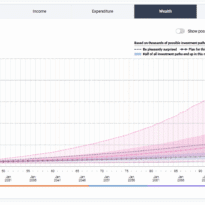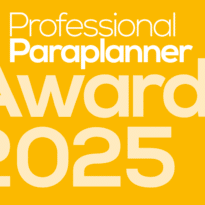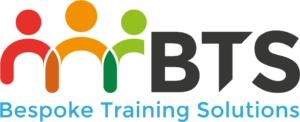Hard skills vs soft skills – what’s the difference when writing your CV? Bespoke Training Solutions’ Caroline Evans explains.
I have had a fair few jobs in my lifetime due to coming from an army background (always on the move), hubby’s work relocations, starting a family, lack of opportunity/career development, toxic workplace/culture and all those other curveballs that life likes to throw at you! So, I know a thing or two about applying for jobs. Whether you’re new to the market or a seasoned professional looking for your next great opportunity, job hunting can be stressful.
DipPFS is one of the go-to qualifications when looking to start a career as a Paraplanner or Financial Advisor, but exams aren’t the only measure of your success. Having the right experience and technical skills for a job is not enough– you also need to have demonstrable soft skills in order to succeed.
Making your CV stand out from the crowd is important. But it must be done in the right way. Let’s start with defining hard skills – these are the technical skills and qualifications needed to do the job you are applying for. These keywords are part of the job advert, and please take note, stage one of your application is to ensure that you have been robust enough to get past the Applicant Tracking Systems (ATS)!
If your CV doesn’t make it past this electronic gatekeeper, you may not even get the opportunity to put your foot in the door.
Some examples of hard skills include:
- Level 4 Diploma Qualified or other industry recognised qualifications
- Skills and experience working with Microsoft Office suite: Word, PowerPoint, Excel
- Creating and in some instances presenting cash flow forecasts using cash flow modelling software
- Exceptional writing, editing, and proofreading skills
The hard skills refer to technical skills or abilities that can be quantified or measured. Refer to the job advert and ensure that you have highlighted any hard skills to demonstrate your technical abilities and knowledge of the role or industry.
So, what are soft skills and why do financial services professionals need them? Soft skills are to do with how well you relate with other people. Employers are essentially looking for a well-rounded candidate, somebody who is responsible, resourceful, and resilient. Soft skills can give employers an idea of how empathetic you are, whether you are a problem solver, how well you can adapt to change and how well you communicate with others.
It’s your soft skills, rather than your hard skills, that provide the framework for building and managing relationships with clients, your colleagues, and your employer. When providing financial advice, you need to put your soft skills to work by being open, listening, and by talking to your clients on a level they can understand. Can you turn the ‘jargon’ chat into language that is clear, more concise and easier to understand whilst tailoring your advice specifically to their needs.
For example, when you start your career in financial services you begin by absorbing everything you can about financial services and the products within the Industry. Every single person who embarks on DipPFS learns those same pieces of information, a veritable how-to process that is heavily regulated and improved upon every year to ensure everyone who earns the qualifications can act professionally and in the best interest of their clients.
But even amid the heavily regulated checks and procedures, there is a ‘soft’ side to this as well. After qualifying, you begin to develop your soft skills, such as creative problem-solving and effective collaboration. Over time, you develop your own unique approach to the process, whether it is how you hold your client meeting, solve problems or even down to how you communicate clearly and concisely.
At some point during the interview process the interviewer will begin to ask questions that allude to your soft skills set, which usually refer to your personality. Some examples of soft skills include:
- Communication [communication skills can be written, spoken, typed or even body language]
- Time management [planning your daily tasks, preparing for meetings and keeping to your schedule]
- Problem solving [finding solutions to difficult or complex issues]
- Adaptability [adapt to and deal with change positively and proactively]
- Critical thinking (critical thinking is the ability to analyse facts to make a decision and often overlaps with problem solving)
- Managing conflict [conflict usually happens between people when they have different opinions on things – what is most important is how you resolve this]
- Organisation [skills you use to keep yourself organised in terms of meeting deadlines, arriving on time and being able to find information as needed]
- Teamwork [skills that allow you to work well with others during conversations, projects, meetings or other collaborations]
Doing your research before you fire off your CV will pay dividends. It can help you understand the job’s duties and responsibilities but will also improve your chances of getting past the first hurdle and onto interview stage. Give specific information relating to your soft skills rather than just bullet pointing.
If you are lucky enough to get to interview stage, describe how you used your skills to achieve your clients’ goals and/or accomplish tasks in your previous jobs. Consider using detailed explanations and examples to highlight your soft skills. Focus on the skills and experience that which will add value to the role you are applying to.
In summary, hard skills get your foot in the door and soft skills can help you stay ahead of the curve. Your hard skills, no matter how good, won’t differentiate you in a crowded market. Your soft skills and how you communicate and engage on the other hand, will.
Three top tips to demonstrate or improve your soft skills:
- Join networking events where you can collaborate, facilitate or create ideas. They are also a great opportunity to meet likeminded professionals
- Join a local toastmaster’s group where you can practice public speaking, improve your communication and build leadership skills
- Take advantage of online resources (podcasts or online courses) where you can learn about different topics/insights that are relevant to your career or industry
The BTS Careers Zone can help you to navigate your way around different career routes, pathways and opportunities. Find out about the different roles in financial services, and which are most suited to you. Job searching can be overwhelming, but with the help of our Careers Zone you can identify what you want out of the process AND take steps to achieve it!
[Main image: joao-ferrao-4YzrcDNcRVg-unsplash]
































